An Interview With Stephen Bogart
Tomorrow is the grand opening of the new Warner Bros. Theater at the Smithsonian Institute. In celebration of the opening the theater will be screening four films featuring Humphrey Bogart, arguably the studio’s must notable star: Casablanca, The Maltese Falcon, Treasure of Sierra Madre and The Big Sleep. Stephen Bogart, son of film legends Bogart and Lauren Bacall, will be on hand for the inaugural presentation of Casablanca. I was lucky enough to speak with him briefly this morning about the new theater, his father’s legacy and some of his thoughts on Hollywood today.

CF: The first thing I wanted to talk about was the legacy of your father. Recently I attended the 10th annual Film Noir festival here in San Francisco and the opening film was Dark Passage and the closing film ten days later was The Maltese Falcon. Both films played to sold-out audiences and it’s a 1,400-seater theater. What are your thoughts on your father’s legacy and that he can sell out a 1,400-seater theater some 70 years after his films have been released?
SB: They should have had me out there! That would have been fun.
CF: We would have loved to have seen you.
SB: How do you explain someone who gets to that level? When you become an icon – I guess that’s what you would call him – you can’t put it into words. There’s really nothing you can say that could explain, “oh this is why. . .this is why.” Because if it was, then of course you would just be able to bottle it and everyone would become that. “Oh I’ll buy some of that, I’ll become an icon, too.” It’s just moments in time and seems to just happen the way they happen. Besides the fact that you had a man with talent who was no-nonsense, wasn’t full of himself, just seemed to be a good person and a good guy and made some absolutely spectacular movies. A lot of them were with Warner Bros. When you put all that together, when you look at all the movies he made. You know, Maltese Falcon, High Sierra, Petrified Forest, To Have and Have Not and we could keep going. There aren’t that many actors who have been in films of that calibre throughout their careers. So I think it’s also a testament of my father’s choices and the people that he chose to surround himself with. He loved writers, he loved John Huston. Between the Dalton Trumbos of the world and the John Hustons of the world, you know what, you’re not doing bad. So I think that’s all part of it. And of course, as I said in the beginning, there’s this little thing that you can’t explain that puts you to the next level. There are other people who have made great movies, but there’s also the love affair that my father had with my mother and his great talent. He was an actor’s actor. He trained on the stage and he knew what he was doing and that’s how it happens sometimes.
CF: Do you think he was aware of this special something that he had?
SB: No. That’s why he had the special something. Exactly because he wasn’t aware of it. If he had been aware of it, it wouldn’t have worked. He was just himself. He liked the ocean and he liked his boat and he liked his wife. . .he had four wives, but his last wife he liked the best. And he just was a guy who happened to be an actor, who happened to be paid well, who respected the craft and respected the writers. I think when it comes to movies, you watch the Golden Globes and almost every person who won thanked the writers first because that’s what it’s really about. You know, there’s only so many Harry Potters that you can make and Harry Potter was writing in the beginning. It’s his choices and the way he lived his life I think. He lived by the golden rule: do unto others. . . and he was good to people and he cared about people. There are many stories that back that up.
CF: Were you ever aware of your parents’ legacy growing up? Did they raise you knowing you were with Hollywood royalty or did you become aware of that later?
SB: I wasn’t. They didn’t bring me up that way. I kind of got an idea when my father died and there were 3,000 people at the funeral. You see videos, you see film of that. All the people that were there. When you’re growing up with that in your family, your family is your family. And your family is, you know, your mother and your father and you still get time out and they still argue with you and, “no mom!” and you fight. And you grow up across the street from Sammy Cahn and also across the street from Art Linkletter. Liza Minnelli and Lorna Luft and Joey and Judy Garland lived down the street. Gloria Grahame lived behind us. So when you’re in with those people, they’re just like friends and parents. It’s nothing special. So, no I was not. And, of course, my father died when I was only 8 years old. After then it is was kind of sadness. So I wasn’t aware of “oh I’m the child of royalty” until much later on.
 CF: Speaking of your mother, she is one of five basically living legends from AFI’s list of the greatest Hollywood stars of all-time. What are your thoughts on that? How does she feel about being one of the few left?
CF: Speaking of your mother, she is one of five basically living legends from AFI’s list of the greatest Hollywood stars of all-time. What are your thoughts on that? How does she feel about being one of the few left?SB: Well, if you know my mother at all, she’d be “oh the living legends! I hate every bit of it!” but really, she really appreciates it deep down. She’s not really into that stuff. She hasn’t come out very much with marketing her name and her likeness, which she certainly could do. I think she’s proud. I mean, to live a life like Lauren Bacall lived, is you know, a dream of 99.9% of people in the world, maybe more. I think she’s very appreciative of what’s happened to her in her life and how lucky she’s been. She met the man of her dreams and he died too soon, but how many of meet the person of our dreams? She married the greatest actor of his day and possibly the #1 movie star of all time. Then, she herself, went out and won a couple of Tony awards and just received a life-time Oscar award. That’s not so bad, you know? She’s led a charmed life. She’s been healthy. Her kids have been healthy. You can’t really beat that, can you? Then she married Jason Robards, possibly the greatest stage actor.
CF: Since I’m in San Francisco, I actually work with the San Francisco Film Museum, which is currently an online entity right now. But we’re working on a sort of Bogart and Bacall exhibit.
SB: I love San Francisco.
CF: We would love to have you out some time.
SB: You should have me out to open it up!
CF: Right now we’re sort of an online presence, but we’re trying to get a building situated. Hopefully we’ll be able to have you out here when we get everything together for the exhibit.
SB: Warner Bros. has this wonder archive with clothes and stuff. You know, my mother has her archives at Boston University. I would also like to add that I really appreciate what Warner Bros. has done. I mean, Warner Bros. is one of the great icons that represents this country. Warner Bros., Coca Cola. I mean, it is the top name in the art of filmmaking. If you look at their archives it’s just great film after great film after great film. I’m so proud that they have chosen to show Casablanca as the first film at the new Smithsonian Warner Bros. Theater. I think that the Smithsonian made a great choice in choosing Warner Bros. for that theater. Warner Bros. has a lot to do with my father and my mother and their success.
CF: Do you want to talk a little bit about the new theater?
SB: I can’t wait to go. Friday night is the opening of the theater. I think it’s apropos because Warner Bros. is part of the history of this country and who else are you going to choose? They can run movies there forever and ever and ever and still have plenty to show there. I was looking at their filmography last night and even the silent films. I mean, look at the movie The Artist. They say silent movies don’t work anymore. Guess what? They do. [laughs] And Warner Bros. was a trailbrazer in those as well. I think that the Smithsonian made an excellent choice and I think that the theater will be packed. It’s a great honor that they chose Casablanca as the first film shown. I can’t wait to go and see everybody. Are you going to be there?

CF: Turning the questions a little bit on you, you’ve worked kind of behind the scenes in Hollywood. Did you ever think about becoming an actor like your parents, or were you always more interest in how it worked behind the scenes?
CF: That’ll be exciting.

SB: Maybe Warner Bros. will do it. [laughs]
CF: I feel the same way. Does your mother have any opinions on the way Hollywood is now?
SB: Does my mother have any opinions? Anybody who knows my mother knows she absolutely has opinions. I think that she would rather have a little less bang-bang shoot em up and more good writing and thoughtful scripts. But there are a lot of those. Movie companies are taking a big shot with each movie, putting out fifteen, twenty million dollars. Plus, PR and stuff like that. And if you lose fifteen out of the twenty, that’s not very good. So the economics put movie companies in a tough spot. This is how films like The Artist get made. You know, Harry Potter, say, makes oodles of money and that’s what enables companies to make smaller films. So, what would my mother say? That’s what she’d say. That there are some fine, fine movies. Really, some fine, fine movies.
CF: Does she still go out to films or does she wait til she can watch them in her own home?
SB: She always used to go out to films, but now she really doesn’t because she’s 87 and she just had a knee replacement a year and a half ago. But, she watches them all. When it comes to voting she’ll screen everything, watch every movie then cast her vote. She watches movies all the time. She likes movies, she loves old movies. When you’re 87 you like to think about when you were young. I mean, hell I’m 63 and I don’t mind thinking about when I was young. Although, 63 isn’t old people say.

CF: What sort of theater people?
SB: Oh! Lemme see, Richard Burton was a good friend of the family and Cybil still is, that was when he was still married to Cybil before Liz came long. Of course, Elizabeth was a great friend of my mother’s. Roddy McDowall, Leonard Bernstein, Adolph Green and Betty Comden, who wrote New York, New York. People like that. Just theater people. I went away to boarding school when I was 13. So I wasn’t really living there, but I would meet these people and go to the shows. I saw most of the really good shows. Camelot with Julie Andrews and Richard Burton and Roddy McDowall and Robert Goulet. How can you beat that, right? So these are the people. Robert Preston, Rex Harrison. I remember meeting them. They weren’t obviously friends of mine, but these were the people my mother hung around, so I got to meet them.
CF: Are you pretty active in the Humphrey Bogart Estate’s online presence?

CF: Yeah.
SB: Yeah, it’s a great page. Myself and my co-managing partner Robert started the Facebook page and it’s just been great. Over 150,000 people in six months. We manage the estate, my father’s name and likeness, Bogart LLC. I’m very active in that. We talk every week and we do what we can do to keep everything going and thanks to Warner Bros., they help a lot. I think this movie theater is just a great thing for Warner Bros., but the honor of having my father’s movie first is overwhelming. I think it’s great and I thank them.
SB: I think the thing about my father’s legacy is that it’s something that you can’t explain. You know, people say “what do you think about that?” and you’d can’t explain it. It’s great films, great writing. He was an excellent, great actor and everything just sort of came together. It’s like being Elvis Presley’s kids. How do you quantify that? You can’t, really. It’s just an amazing thing to me and it’s an amazing thing that my mother and my father are my mother and my father. I mean, “oh you’re Humphrey Bogart and Lauren Bacall’s kid?” I don’t think that way, but it is pretty amazing that somebody is their child and that that somebody is me.
Posted on January 31, 2012, in Classic Film, Q&A and tagged Casablanca, Dalton Trumbo, Dark Passage, Gloria Grahame, Harry Potter, High Sierra, Humphrey Bogart, John Huston, Lauren Bacall, Stephen Bogart, The Artist, The Big Sleep, The Caine Mutiny, The Maltese Falcon, the Smithsonian, The Treasure of the Sierra Madre, To Have and Have Not, Warner Bros.. Bookmark the permalink. 14 Comments.



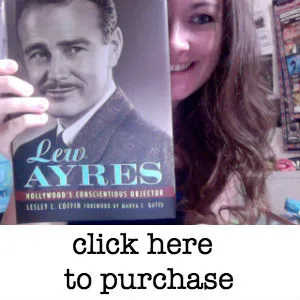

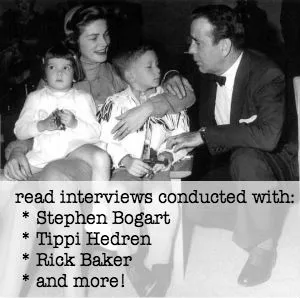
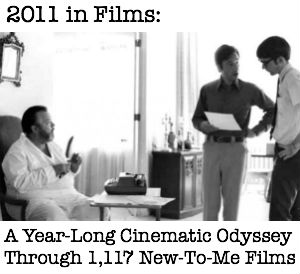
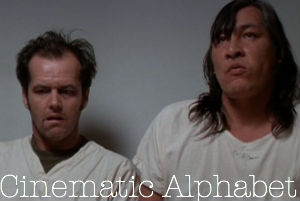

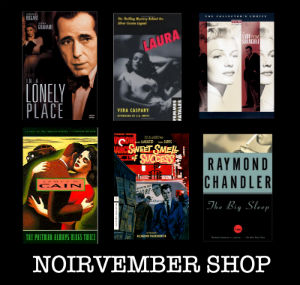
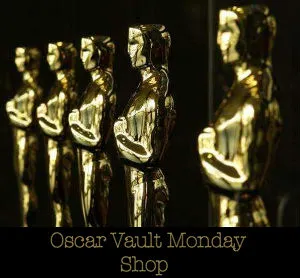







Forever jealous that you were able to interview him (as I already said on tumblr earlier, haha). I love what he had to say about not being able to choose a favorite film, and about his mother’s movie-watching. This is great!
This interview is super rad. I especially always love hearing what old hollywood stars think of the industry today.
What a lovely interview. He comes off very humble but still very proud of his parents (and who wouldn’t be?).
And now I wish I could get to D.C. to watch Bogart on the big screen.
Amazing interview! I hope I’ll be able to read more in the future!
Casablanca was a great film.
Great interview!
“..but it is pretty amazing that somebody is their child and that that somebody is me…” what a great line! Wonderful interview of a remarkable guy.
One of my favorite aspects of the iconic status of Bogie is the song 2HB, written in 1972 by Roxy Music:
Your memory stays
It lingers ever
Will fade away never
and another surprise is that there’s a ‘disco ball’ in Casablanca, way back in 1942.
So glad you got to do the interview, thanks for sharing it with us!
Very interesting. Nice substance. You sure got a lot out of a 25 minute interview! Nice job.
Pingback: January 2012 in Films: Il Cinema Italiano, Film Noir, Podcasts and Interviews « the diary of a film awards fanatic
Pingback: Re: Humphrey Bogart—An Interview With Stephen Bogart | James Russell Ament
Pingback: Casablanca 70th Anniversary Edition « the diary of a film history fanatic
Pingback: Stephen bogart | Sybaritejourna
Pingback: Humphrey Bogart's son shares heartbreaking story about movie star father's passing
Pingback: Guncelkal.net - Humphrey Bogart’s son shares heartbreaking story about movie star father’s passing